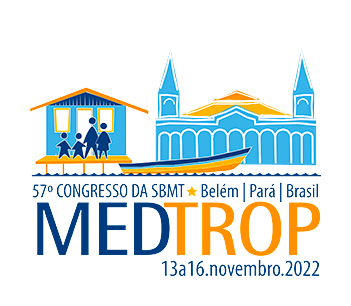Dados do Trabalho
Título
Transforming growth factor beta neutralization improves the cardiac performance and reduces Trypanosoma cruzi infection
Introdução
Chronic Chagasic cardiomyopathy (CCC), a progressive inflammatory and fibrosing disease, is the most prominent clinical form of Chagas disease, a neglected tropical disease caused by Trypanosoma cruzi infection. During CCC, the parasite remains inside the cardiac cells, leading to tissue damage, involving extensive inflammatory response and irregular fibrosis. Among the fibrogenic factors is transforming growth factor-β (TGF-β), a key cytokine controlling extracellular matrix synthesis and degradation. TGF-β is involved in CCC onset and progression, with increased serum levels and activation of its signaling pathway in the cardiac tissue, which crucially contributes to fibrosis. Inhibition of TGF-β signaling pathway attenuates T. infection and prevents cardiac damage, in an experimental model of acute Chagas disease.
Objetivo(s)
The aim of this study was to investigate the role of TGF-β on T. cruzi infection using the 1D11 monoclonal antibody, which neutralizes the three isoforms of TGF-β in in vitro and in vivo pre-clinical models.
Material e Métodos
To this end, primary cultures of cardiac cells were infected with T. cruzi trypomastigote forms and treated with 1D11. For in vivo studies Swiss and C57BL/6 mice were infected with T. cruzi (104 from Y strain and 102 parasites from the Colombian strain, for acute and chronic phase studies, respectively) and treated with 1D11 in different schemes of administration.
Resultados e Conclusão
In the present study, we show that the addition of 1D11 to cardiac cells greatly reduces cardiomyocyte invasion by T. cruzi and the number of parasites per infected cell. In both acute and chronic experimental models, T. cruzi infection altered the electrical conduction: decreasing the heart rate, increasing the PR interval and the P wave duration. The treatment with 1D11 reversed electrical abnormalities, improved cardiac performance, and reduced cardiac fibrosis. Taken together, these data further support the major role of TGF-β signaling pathway in T. cruzi-infection and the biological consequences of parasite/host interactions. The therapeutic effects of 1D11 are promising and suggest a new possibility to treat cardiac fibrosis in the chronic phase of Chagas' heart disease by TGF-β neutralization.
Palavras-chave
Cardiac fibrosis, Chagas disease, TGF-β, 1D11
Área
Eixo 06 | Protozooses
Autores
ROBERTO RODRIGUES FERREIRA, Elen Mello de Souza, Glaucia Vilar-Pereira, Wim Degrave, Rayane da Silva Abreu, Joseli Lannes- Vieira, Tania Araújo-Jorge, Mariana Caldas Waghabi
